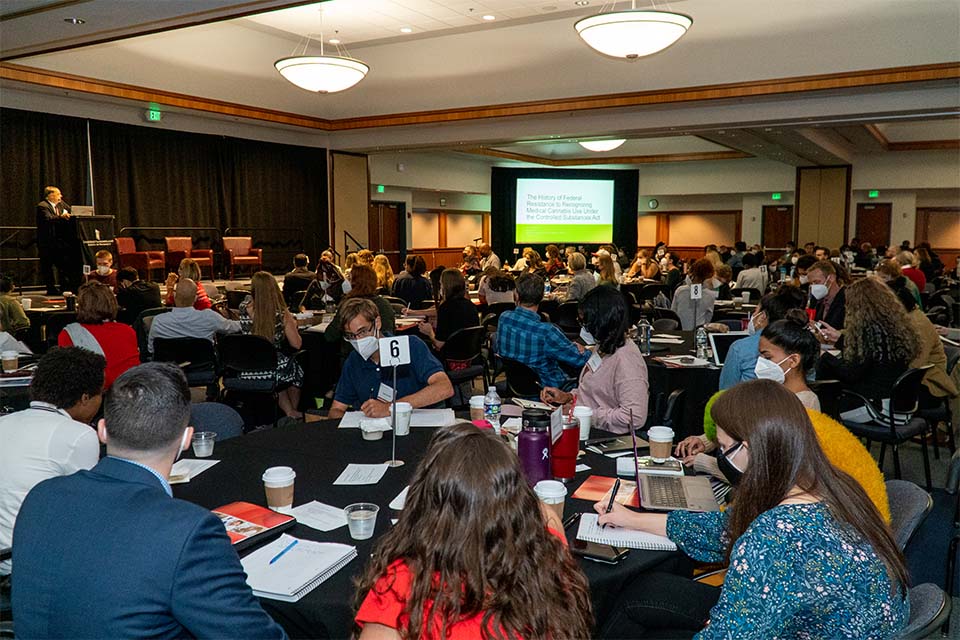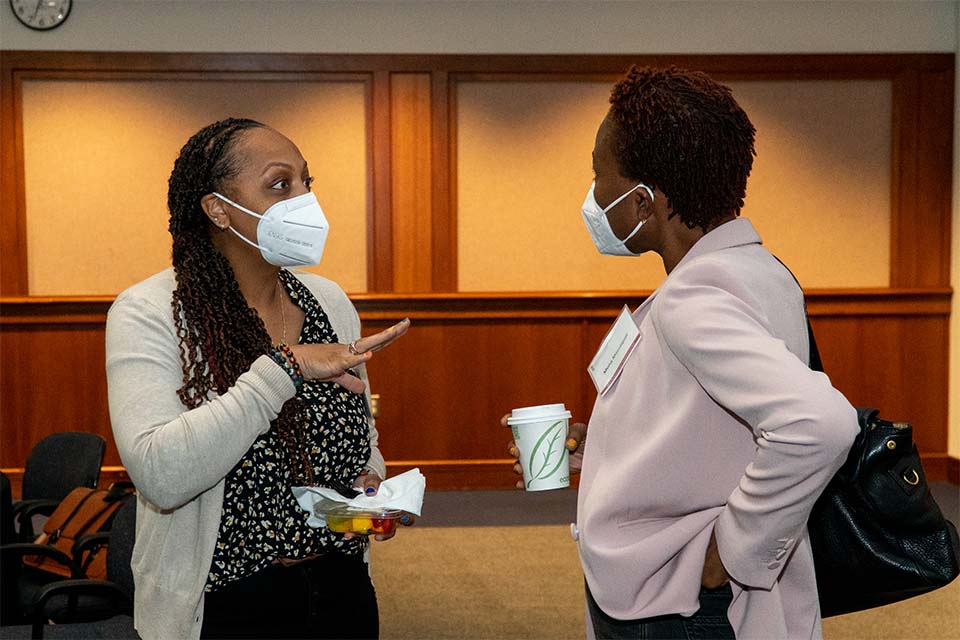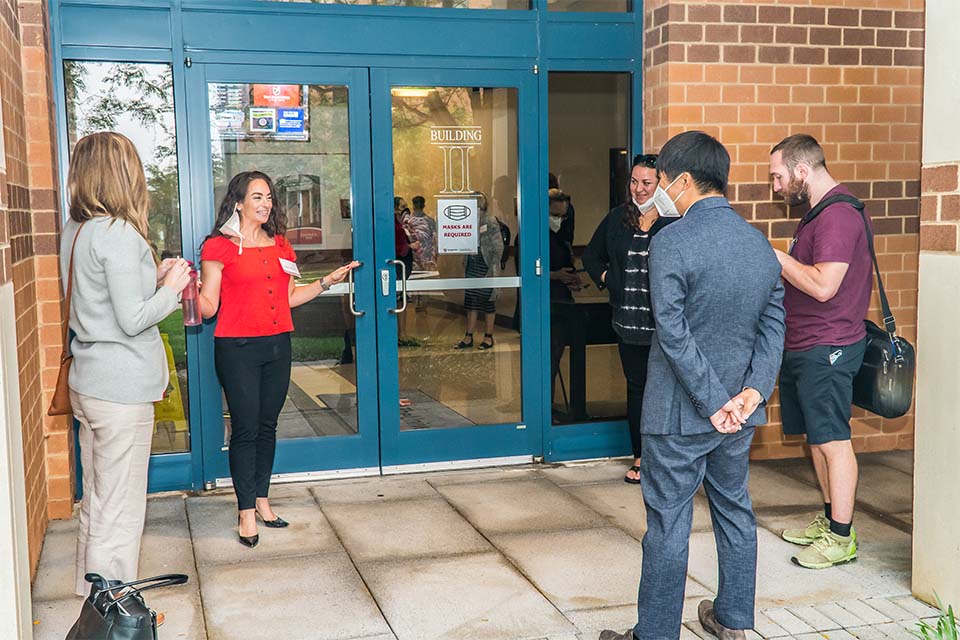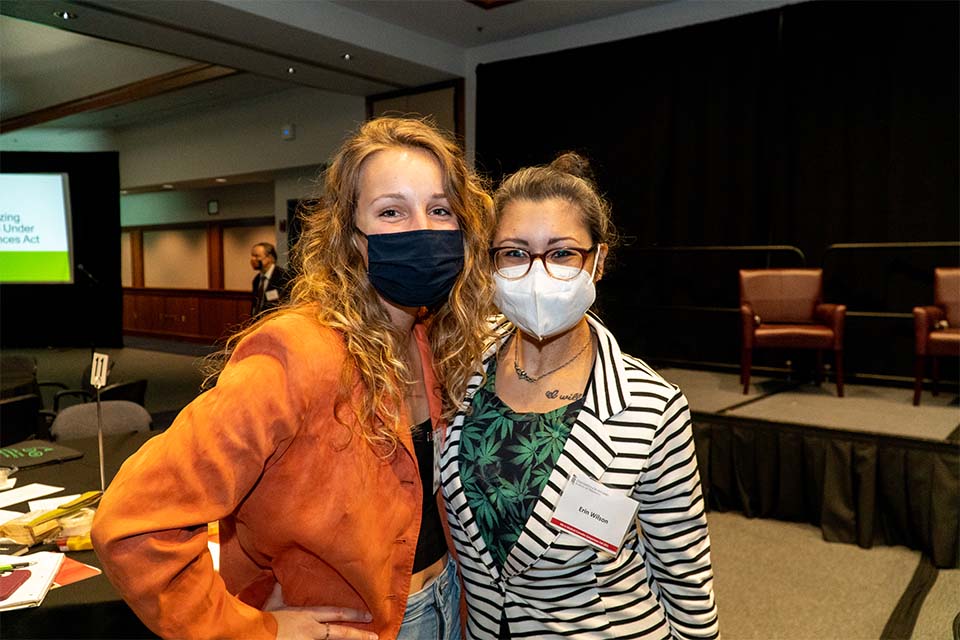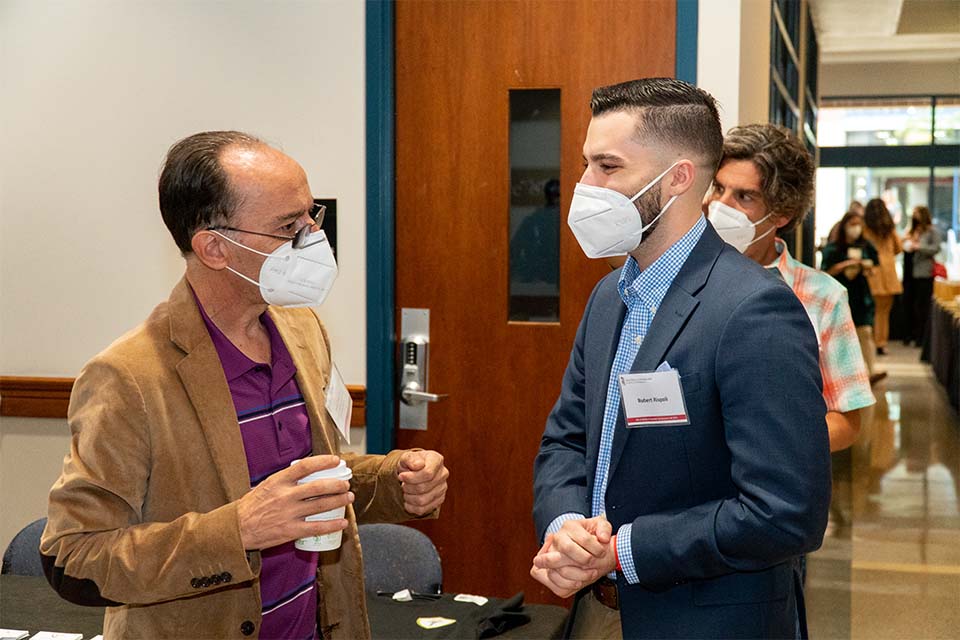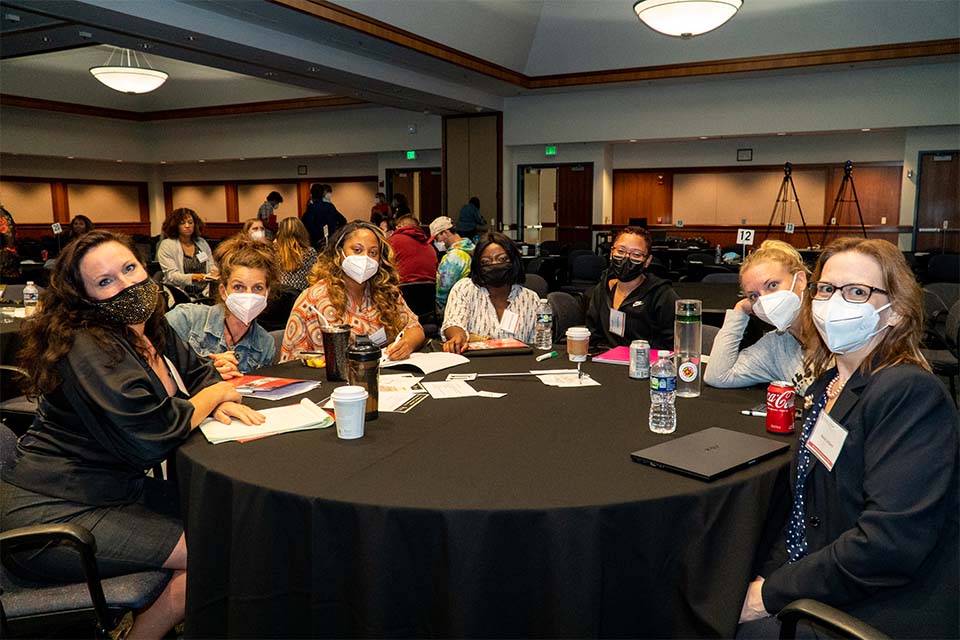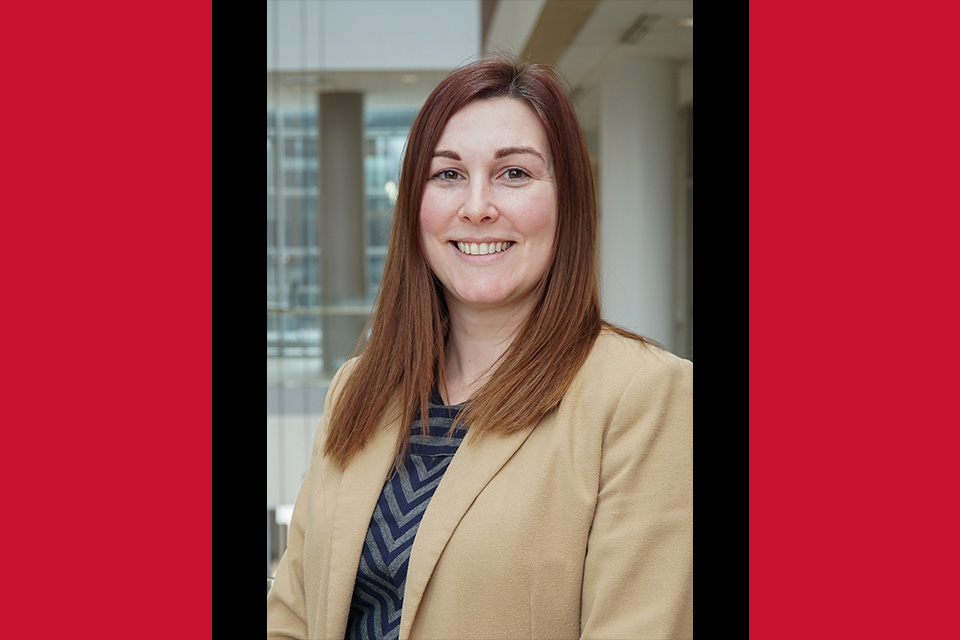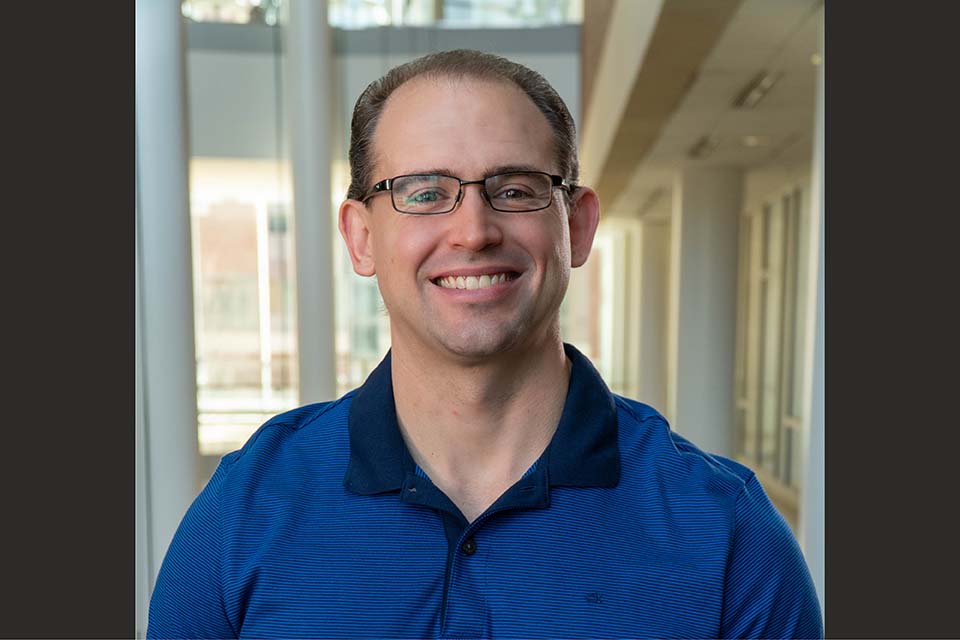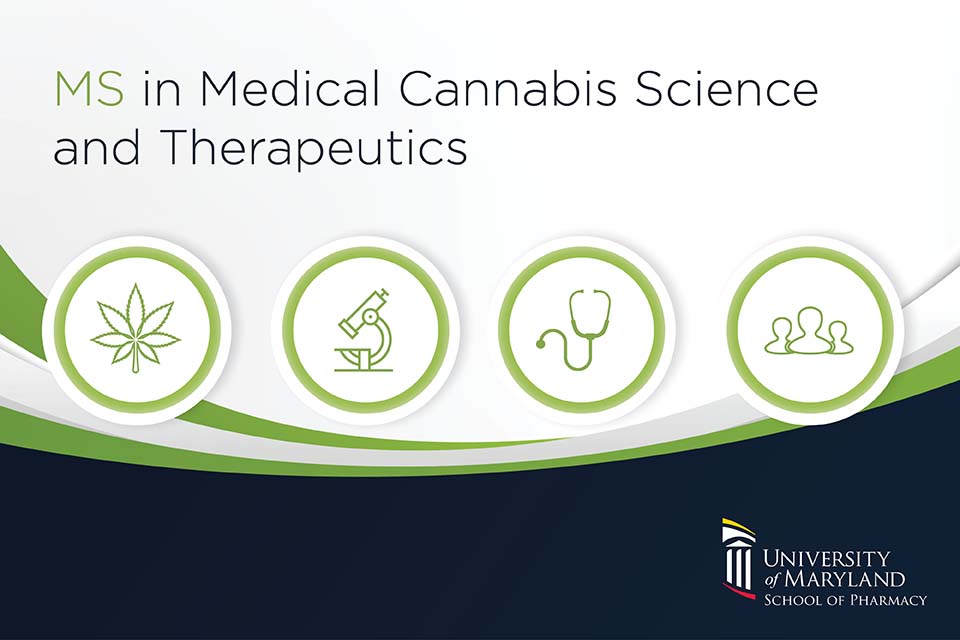Diverse Class, Many Hopes for MS Medical Cannabis Students
Program’s third cohort meets for the first time at USG for required symposium
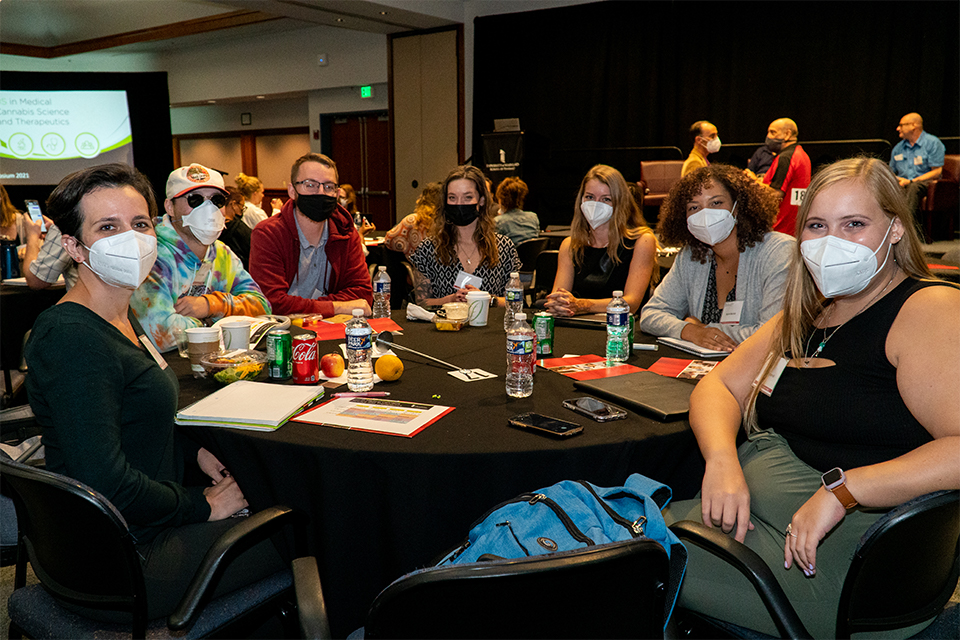
By Mary Phelan
September 27, 2021
As the latest cohort of students enrolled in the University of Maryland School of Pharmacy (UMSOP)’s Master of Science in Medical Cannabis Science and Therapeutics program sat before him, Andrew Coop, PhD, professor of pharmaceutical sciences and the School of Pharmacy’s associate dean for academic affairs, provided a warm welcome while also posing an important question.
“Now, we give you the science background,” Coop said, speaking to the first-year students. “You’re going to get the clinical background. You’re going to get the negative outcomes background. You’re going to get the law background. You’re going to get the analytical background. It’s going to be a long journey. What are you going to do with it?”
Students in UMSOP’s MS in Medical Cannabis Science and Therapeutics (MCST) program, the only one of its kind in the nation, were eager to answer that question as they gathered Sept. 17 for the program’s Fall Symposium, launching their education in the burgeoning industry. More than 200 students attended the event at the Universities at Shady Grove (USG) in Rockville, Md.
Leah Sera, PharmD, MA, program director and associate professor of pharmacy practice and science, welcomed the Class of 2023, made up of students from ages 20 to 73, from across the United States, Washington, D.C., Canada, the United Arab Emirates, and Costa Rica.
“There are many uncertainties in the world right now, and I know that many of you are taking on the challenge of this program in addition to increased professional and personal responsibilities,” Sera said. “Thank you for choosing to be a part of this program and participating in the advancement of cannabis medicine.”
Launched in August 2019, MCST provides students with the knowledge and skills needed to support patients and the medical cannabis industry, add to existing research in the field, and develop well-informed medical cannabis policy. Based at USG, the two-year program is designed for any individual who has completed an undergraduate degree and is interested in pursuing a career in the medical cannabis industry.
Sera said reading the students’ introductions on a class message board prior to the symposium made her excited about the group’s diversity.
“We have students with backgrounds in science and medicine, students who have studied law, public health, business, political science, communication, and students with backgrounds in many other fields,” she said. “I believe that this diversity will make this experience all the richer for you, and for those of us teaching in and supporting the program.”
The morning session featured remarks from Anne Khademian, PhD, executive director at USG and associate vice chancellor for academic affairs, University System of Maryland; Carrie Hempel-Sanderoff, DO, an osteopathic physician and owner of Hempel-Sanderoff Wellness, and an adjunct faculty member in the MS program; Jon B. Gettman, PhD, associate professor in criminology and criminal justice, Shenandoah University; and Michelle Wright, MS ’21, president of Certus Consulting, and an alumnus of the program’s first graduating class, who shared her story about the benefits medical cannabis has had for her 29-year-old autistic son.
MCST is the first graduate program in the country dedicated to the study of medical cannabis. It aims to meet the needs of all individuals interested in advancing their knowledge about medical cannabis, including health care professionals such as physicians, nurses, and pharmacists; scientists and regulators; growers and dispensary owners; and policy and industry professionals. Online coursework is designed to accommodate students with or without a background in science or medicine. In-person symposia are typically held once each semester to provide students with opportunities to network with peers, as well as meet and interact with experts in the science, therapeutics, and policy of medical cannabis.
The program graduated its first class of 132 students in May 2021.
For Alexandra Harris, a field application scientist from California who works in cancer biology, enrolling in UMSOP’s program is a vehicle to eliminate the stigma around cannabis in order to promote cannabis research. Harris was raised by cannabis advocates, who used cannabis to treat her Lyme’s Disease and shingles. “I appreciate cannabis for its medicinal value,” she said. She now serves as vice president of the Medical Cannabis Student Association, the program’s student organization.
Classmate James Schwartz, a former critical care nurse and a medical cannabis cultivator for more than two decades in Oregon, has lobbied in Washington, D.C. for what he calls reasonable cannabis policy. He enrolled in the program to stay at the forefront of the “cannabis revolution.”
“I personally found my life kind of changed and healed through cannabis,” he said. “My best friend died when I was in college. It set me down a path of uncomfortable alcohol and other drug use, and put me into a pretty deep depression. And when I finally got those other harmful toxic substances out of my body and found cannabis again, after using it for pleasurable reasons, during college, I really began to understand the therapeutic potential of cannabis. And it was at that time that I started to really dive into whatever research that was out there at the time, which 22 years ago was relatively small.”
“As I look to the future of where I want to be, the credibility of an accredited master’s program in cannabinoid science and therapeutics will be useful to continuing to remain at the forefront of cannabis science, which has become my life’s passion,” he said.
Carlos Hernandez, MD, traveled from Costa Rica to attend the symposium. “It was a very long journey. I had to get vaccinated, because in my country, vaccines are not that available, and I had to get vaccinated like a month ago in Miami and then have all that information sent to the university,” he said.
A general practitioner, Hernandez, known as the “Cannabis Doctor” in his country, has been prescribing cannabinoids to patients for four years.
With his MS degree, “I hope to bring all this information to advocacy and policy creation in my country, because we are on the verge to actually produce and regulate cannabis in my country,” he said.
Megan Arnold, an elementary music teacher from New Hampshire, was inspired by her husband, a nurse, who has seen the benefit of medical cannabis in his work with veterans with post-traumatic stress disorder.
“His experience with veterans and PTSD, and his own personal experience with PTSD and treatment with cannabis inspired me to kind of do some more research and figure out what was going on.,” Arnold said. “And the more I researched, the more intrigued I was with what I was learning as compared to what I had been taught.”
After teaching music for 22 years, she took a leave of absence to plunge into the MS in medical cannabis program.
“The advocacy drove me to this program,” she said. “To me, it seems like a way that I can learn and then continue to teach, even if it’s not music.”
As a teacher, she has seen many children with ADHD being treated with Ritalin and Adderall with terrible outcomes. “I’m seeing kids that have trauma and all sorts of things that could benefit in the future from cannabis, if we knew enough about it. So, I’m here to do something about it.”
With extra time on her hands during the pandemic, she began researching academic programs about the science of medical cannabis. UMSOP’s program came up in a Google search.
“I was like, oh, this doesn’t make any sense at all. But it makes all the sense in the world,” she said.
In afternoon breakout sessions, students met clinical professionals, entrepreneurs, scientists, and those working in advocacy to learn about the variety of professional paths in the industry.
MCST’s second-year students met at USG on Sept. 24 for their symposium.

